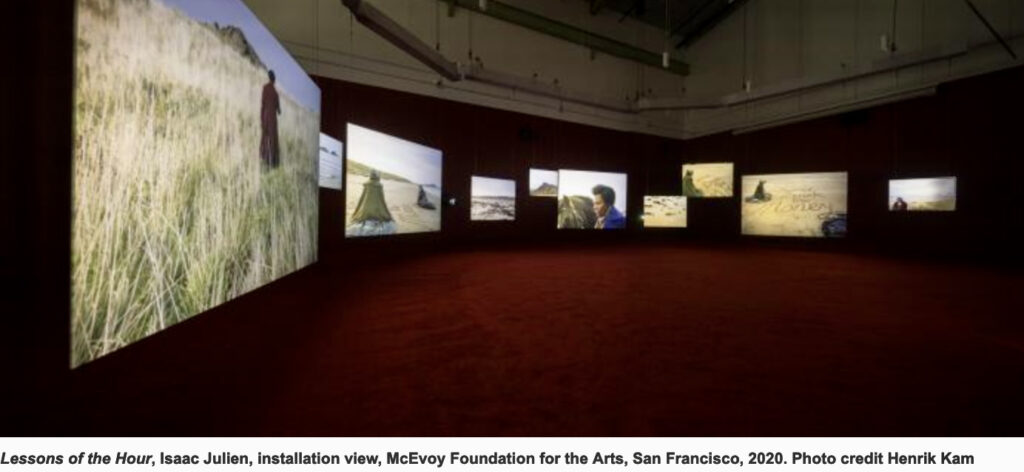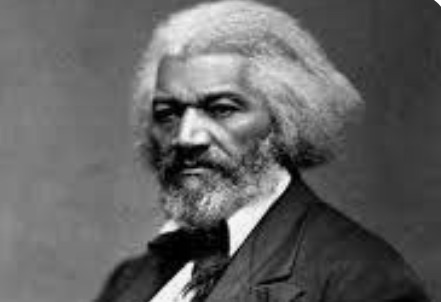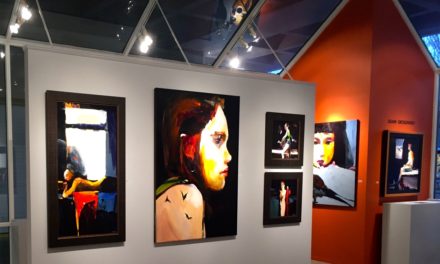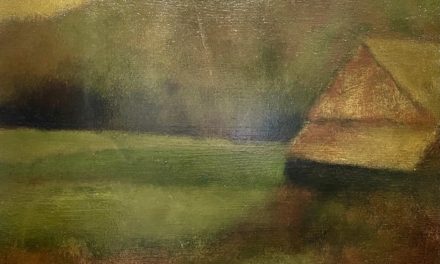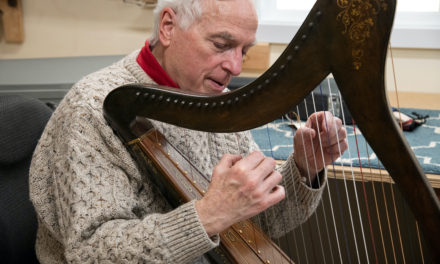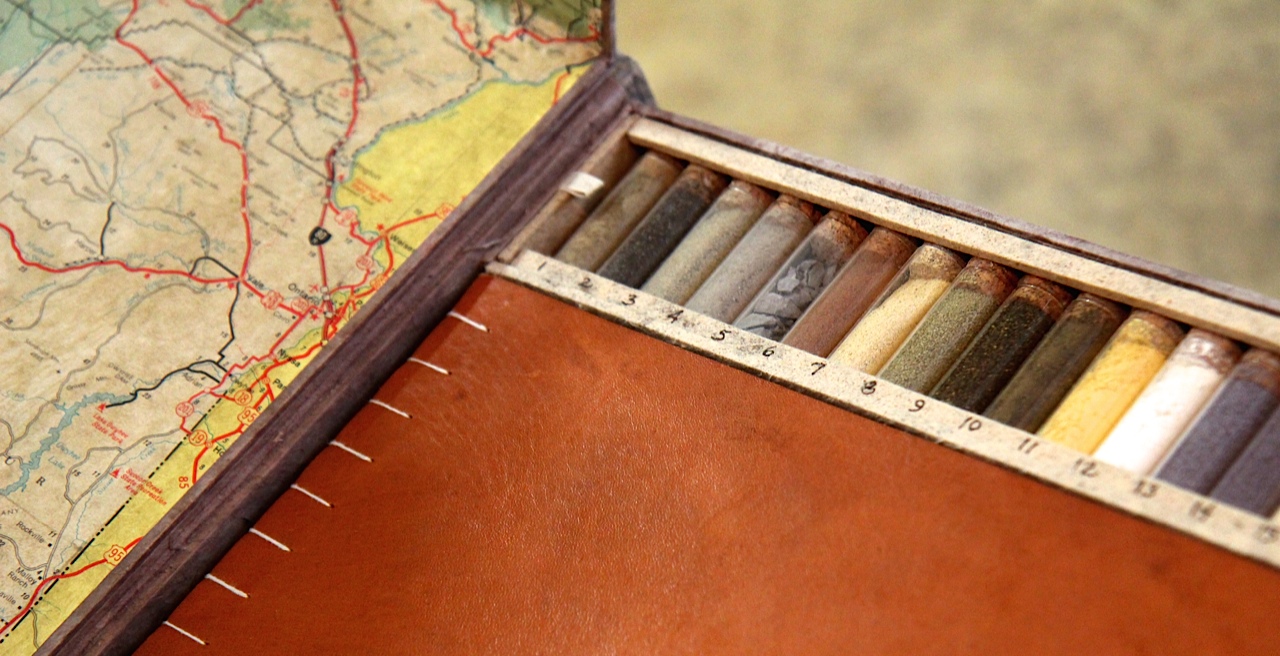(Above: Orator, thinker, and traveler Frederick Douglass, an extraordinary figure in U.S. political history, literature, and social impact)
Edited by Randi Bjornstad
Now that fall days of sun and bustling outdoor activity are turning to seasonal clouds and rain that make indoors appealing, it is the perfect time also to turn intellectually inward, and a film display at the Jordan Schnitzer Museum of Art at the University of Oregon is a perfect candidate for such introspection.
This exhibit, Lessons of the Hour — Frederick Douglass, has been on display since early August, and it will be available for viewing through Dec. 10.
It’s the work of British filmmaker Sir Isaac Julien, and it consists of a multi-screen film show examining the life of Douglass, who began life in slavery and became one of this country’s most important African American writers as well as an abolitionist, statesman, and orator.
The installation consists of 10 screens showing the breadth and depth of Douglass’ life and intellectual achievement, alternating between the poetic and the intellectually powerful aspects of his thinking and expression and tracing his path through time, travel, and continuing relevance to national and international thought.
In announcing the exhibit when it opened, JSMA executive director John Weber said preparation of the installation began in 2019, “and there has never been a media installation of this complexity, ambition, and historical significance shown here before.”
In fact, Weber said, “Words cannot explain what the experience of Lessons of the Hour will be like. You must see it.”
The show recreates Douglass’ intensely productive life — he was born in 1818 and died in 1895 — from his early days born into slavery until he escaped and won his freedom. He became a preacher, which enabled him to hone his oratorical skills, after which he became a staunch figure in the anti-slavery movement as well as other forms of racial and social discrimination, including his support of women’s suffrage, throughout the northern United States and the United Kingdom.
It has been said that he was the most-photographed American of the 19th century, which also enabled him to inspire Black people to consider themselves and their likenesses beyond the caricature that so often entrapped them.
The show at the UO includes re-enactments of Douglass’ considerable travels as well as excerpts of some of his most powerful oratories, including titles such as What to the Slave Is the 4th of July?, Lecture on Pictures, and Lessons of the Hour.
This onscreen Douglass persona is portrayed by British actor Raymond Fearon, whose career has included parts ranging from garage mechanic Nathan Harding in the long-running popular British soap opera, Coronation Street, to the voice of Firenze the Centaur in the film adaptation of Harry Potter and the Philosopher’s Stone, to Shakespearean dramas.
Lessons of the Hour is a 29-minute montage of Douglass’ life, speech, and surroundings, ranging from the Frederick Douglass National Historic Site, which includes his home in Cedar Hill maintained as it was during his lifetime, as well as places he visited and spoke in Scotland and England.
Filmmaker Julien was born in the Caribbean before his family migrated to London. Some of his earlier works include Looking for Langston, a 1989 film about Harlem Renaissance figure Langston Hughes, and Young Soul Rebels, made in 1991 and winner of La Semaine de la Critique prize, awarded by the French Union of Film Critics parallel to the Cannes Film Festival. His work over the past four decades was shown at London’s Tate Gallery earlier in 2023, and he was knighted by Queen Elizabeth II in 2022 “for services to diversity and inclusion in art.” Besides time spent in London, Julien holds the position of distinguished professor of the arts at University of California, Santa Cruz.
Lessons of the Hour — Frederick Douglass at the JSMA
When: Through Dec. 10, 2023
Where: Jordan Schnitzer Museum of Art, University of Oregon campus, 1430 Johnson Lane
Hours: 11 a.m. to 8 p.m. Wednesday; 11 a.m. to 5 p.m. Thursday through Sunday (will be closed on Friday, Nov. 10; will close at 5 p.m. on Wednesday, Nov. 22 and be closed on Friday and Saturday, Nov. 24-25)
Information: 541-346-3027 or jsma.uoregon.edu
